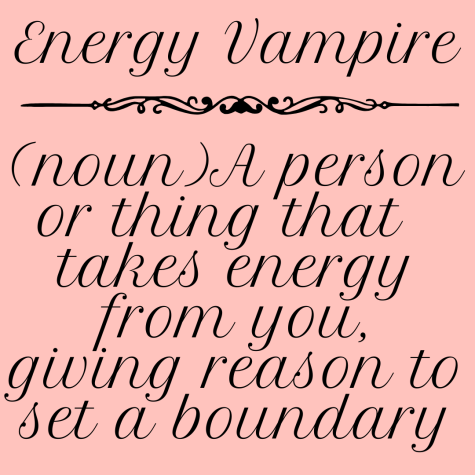The art of setting boundaries
Oct 28, 2021
Setting boundaries in our lives is an often overlooked part of self care. It is a difficult process to set boundaries, but since it is emphasized so greatly in wellness, it is important to know how to set strong boundaries in your personal life.
I talked with the coordinator of the JCU Wellness Center, Jamie Greenwolf, and graduate assistant Anna Mahoney to discuss wellness and boundary setting. I started off by asking about what exactly wellness means, as that dictates what boundaries you need to set. Greenwolf shared he views wellness as becoming the person you would like to be, asking, “What can we do to promote your ability to do that or to remove barriers in that path?” This could do with many self regulation skills: time management, coping with mental illness or understanding your identity, for example. Making sure you are the best version of yourself is something that the Wellness Center prioritizes and that ties in heavily with boundary setting.
What situations do you need to set boundaries in? Greenwolf stated that boundaries are needed to maintain personal integrity and ensure that assumptions made about others are generous. He says, “People are doing the best they can with what they’ve got, which means that if this is the best that you have, then I’m less likely to wait for you to change. But also, it means that I need to then make assumptions and boundaries based off of that.” This could apply to many areas, such as tardiness with a friend. If you have to consistently deal with their inability to be on time, you need to either deal with that issue or specify that your friendship will not work best if they will continue to be late.
It is difficult to feel comfortable using your voice in setting boundaries, but Mahoney emphasizes that expressing what you require from someone is vital. She says, “I think if we are promoting wellness and wanting people to thrive and be the best version of themselves, they have to feel comfortable stating what they need, which is a boundary.” Greenwolf also mentioned boundaries as promises to yourself, which further shows the significance of taking the time to figure out what you need from people in your life.

Lots of people and situations can come in between you and well-being, which is why boundaries are so useful. The term “energy vampire” can encapsulate any person or anything that takes energy from you, giving a reason to set a boundary. Greenwolf stated these individuals might be “using relationship seeking behaviors that aren’t finely tuned yet. So it’s not that they’re being needy or they’re being too much, it’s saying they really care about you or these other people and they haven’t quite figured out the best way to show that.” Being able to assess these situations and working with others is a healthy strategy, as you can emphasize the importance of changing undesirable behavior.
Everyone who uses social media has likely been bombarded with infographics giving general information about mental health or issues such as boundary setting, so do they have any legitimacy? Greenwolf states that they can provide some useful information, but work best paired with other methods. He says, “It is a collective approach: you know where the counseling center is, you know where our office is, you have friends who support you…it can help further you down that path and it can be a reminder.” Social media posts about boundary settings work best in triggering what needs to be done and reframing reasons behind those actions.
With the emphasis made on why boundary setting and self care is crucial, finding techniques on how to establish boundaries is important. Greenwolf mentions that compromise is a big tool for boundary setting. Saying, “What do I need, and who is in control of me getting or not getting that thing? Then having a conversation with them.” Having a productive conversation about boundaries should strengthen your relationship.

Another way of going about boundary setting is initially making a pros and cons list or writing out your thoughts before approaching someone on the matter. Mahoney mentioned that you know yourself best in how these situations will go, so taking the most meaningful approach without creating anxiety will be best. The Wellness Center is a great resource to go to for finding your own method of approach. Psychology Today also has a published article that outlines different techniques for boundary setting, which could be integrated into your own approaches.
As previously mentioned, if you need help setting boundaries or with general wellness, JCU provides a few different options. For confidential, longer term counseling, the Counseling Center (currently located in the basement of Pacelli) can be of service to you. It can ensure a deeper understanding of you and your wellbeing. Similarly, the JCU Wellness Center (located in the Health Center) offers wellness coaching, which consists of only one to two meetings and goal setting. Meetings can be booked the same day or in advance via their website. If you would like to assist in the process of wellness coaching and boundary setting, the Wellness Center will be hiring peer health advocates soon.













